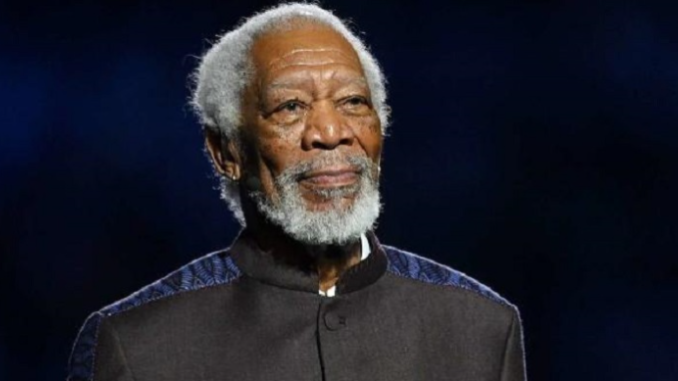
Legendary actor Morgan Freeman, known for his profound voice and commanding screen presence, recently shared his controversial views on Black History Month, a perspective that is sure to resonate with many conservatives. In an interview with Variety on June 15, Freeman expressed his strong dislike for Black History Month, asserting that American history as a whole is what truly matters, rather than singling out one group’s contributions.
Freeman, now 87, is not just an actor but a producer as well. His latest project, “The Gray House,” co-produced with Lori McCreary, delves into the United States Civil War. The show, according to IMDb, “centers on the three women who General Ulysses S. Grant credited as helping the North win the Civil War.” This backdrop of American history underscores Freeman’s broader perspective on the subject.
When asked about Black History Month, Freeman didn’t mince words. “I detest it,” he declared. He elaborated on why he finds the concept so objectionable: “The mere idea of it. You are going to give me the shortest month in a year? And you are going to celebrate ‘my’ history?! This whole idea makes my teeth itch. It’s not right.” Freeman’s frustration is palpable, as he challenges the notion of isolating black history from the broader narrative of American history.
Freeman emphasized that his history is fundamentally American history. “It’s the one thing in this world I am interested in, beyond making money, having a good time and getting enough sleep,” he said. This perspective aligns with a conservative viewpoint that stresses the importance of a unified national identity over hyphenated histories that can divide rather than unite.
Highlighting the importance of understanding history in its entirety, Freeman warned, “If you don’t know your past, if you don’t remember it, you are bound to repeat it.” This echoes a common conservative sentiment that stresses learning from history to avoid past mistakes, rather than focusing on fragmented narratives.
In the interview, Freeman also discussed the entertainment industry, illustrating the cyclical nature of success in Hollywood. “Do you know this song? ‘To everything, there is a season.’ It really, really works in showbusiness. You are trying to sell something 15 years ago and nobody even looks at you. Then they go: ‘Didn’t you have a project, some time ago? Do you still have it?’ Life is like that, in this industry,” he reflected.
On his latest project, “The Gray House,” Freeman noted its broad scope and inclusivity. “It’s so wide-ranging. There are so many people in the series, because we are acknowledging they were there. If you can do that, if you are given space to do that, bravo. It didn’t just happen to one group of people,” he said. This underscores his belief in a comprehensive approach to history, recognizing all contributions rather than focusing on a single narrative.
Co-producer Lori McCreary added context to the show’s treatment of slavery, a critical element given its Civil War setting. “We are not white-washing, we are not sugar-coating the fact that African Americans were enslaved. They weren’t treated as a full person. When you come out of watching these eight hours, maybe you will look at someone who looks like Morgan or me differently. You will understand their experience, their ancestors’ experience and you will be able to relate,” she explained.
Leave a Reply